My 3 year old is considering potty training. That would have a wonderful impact on my life. She’s not totally ready. I can reward and chart and beg and do heaps and heaps of laundry. OR I can offer and wait. Keep open to it and be willing.
Imagine if we decided at age one whether or not a baby was going to be an athlete…based on their physical abilities. Can they walk? yes…fast tracked to other athletic training and support. Those who can’t walk…get practice and extra support and training. Does that sound crazy? Who would do that? Most doctors are very patient with a 14 month old who can’t walk. We do check a few things to make sure they are fine, then we wait patiently for development to proceed. Does the play group allow the same grace?
Do we have some respect for the developing brain?
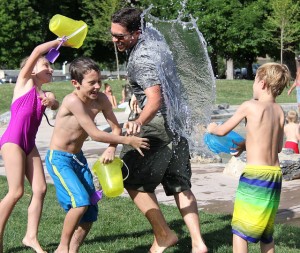 When children don’t hit milestones when they “should”. How do we respond? Some children aren’t ready to read in kindergarten. They know their letters and sounds, but can’t quite pull it together and blend the sounds. They aren’t broken any more than a late walker is broken.
When children don’t hit milestones when they “should”. How do we respond? Some children aren’t ready to read in kindergarten. They know their letters and sounds, but can’t quite pull it together and blend the sounds. They aren’t broken any more than a late walker is broken.
Yet we put them in boxes. They are delayed. They are “other”. Why? Brains develop at their own speed. We have wide windows allowing development in many physical avenues, but with mental development…are we so forgiving?
In my own family we have children who have learned to read anywhere between ages 4 and 9. We keep phonics around. We read. We give them the pieces they need and then go on with all of our lives. In a one on one situation, I can SEE the click. At one point instead of painfully sounding things out, it blends seamlessly. Off they go. A year later, It is impossible for anyone to tease out the “early readers” from the “late readers”.
In other subjects do we heap on homework and move ahead quickly, with this illusion that quicker is better and earlier is better.
Imagine a 7 year old child being asked by a coach to do serious weight lifting. We know the science behind development of bones and muscles. This is generally respected. We let children play with small weights. But we don’t push. it sounds strange to us to try.
Yet here we are pushing and pushing our little children. We respect their bodies, but their minds?
I know kindergarten teachers who know what they are being asked to do is not developmentally appropriate. They have administrators and federal standards pushing things, like a weight trainer pushing a very young child. More reps. more weight. Earlier. More tests, more information…earlier.
Little brains don’t grow because federal standards demand it. You can’t pull and push a little brain any more than you can pull a plant to make it grow. 5 year olds don’t need tutors to catch up. They need the grace and space to grow at their own pace.
We know with weight training and the young developing body, the muscular system and skeletal system can’t handle the weight. They break or are damaged, in some cases permanently. What are we doing to the brains of our young people? 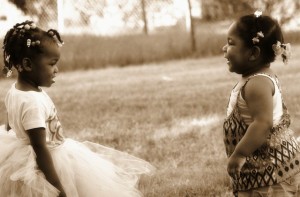 Can we stack on standards like so much extra weight and expect our very young children to just adjust? Can we tell a child who is developing normally that they are behind? Can we then just continue testing them and expect them to come out the other side with a healthy attitude towards learning?
Can we stack on standards like so much extra weight and expect our very young children to just adjust? Can we tell a child who is developing normally that they are behind? Can we then just continue testing them and expect them to come out the other side with a healthy attitude towards learning?
How can we develop patience when we have federal standards and 25 other kids in a class?
It is a challenge.
What can we do?
This post is really a plea for play. Value play. REALLY value play.
1- Clear the schedule for play.
Push back sports and schedules and activities that LOOK like something and let a child play. How much non screen free time do our children have? How can we give them that time to play? I get that it sounds better and feels like we’re doing something to have practices and play dates and schedules, but play is different. It’s important. It’s how children learn. We need to push back homework, work on delaying testing and grades and carve out some time and space for our children to be…children.
2- Play allows for lots of unjudged failure.
I’ve been watching my children play lately. They learn some fascinating things just playing. They fail a lot when they play. The tower doesn’t stay up, the lego creation isn’t quite right, the teepee falls down, the twentieth time they draw the pony, it still isn’t right, they can’t tag anyone…what happens in structured atmospheres? Do we let children fail on their own enough? Figure it out and let it be a part of the normal learning process? Without grades and coaches and adults…let the child fail and figure it out. Let failure be a beginning to learning. Let them redraw something or rebuild or keep trying in play.
3- Play is healing.
Frequently in play, children process their lives. They act out situations, albeit in the form of a cat or dinosaur or princess. They imagine their futures. They think through tough situations. They have the freedom of not having to BE something. So they can be themselves. It’s okay for them not to know when we’re talking race cars. That’s comforting. They can view things objectively and their hind sight can develop into ways of being.
4- Play is appropriate developmentally.

To read all of Britt Kelly’s articles, please click here.
If a child were left alone in a weight room, they may play around with heavier weights, but they wouldn’t stay there. They’d figure it out on their own. When we let children learn through play they are far less likely to burden their brains and bodies. They leave when they uncomfortable, they stop when they’re bored, they move on…we think of that as childish sometimes and a reflection of their lack of determination will. What if we recognized it as an honest reflection of their development? They know how to listen to their bodies and minds. A child stops trying to walk and crawls to where she’s going. It’s not laziness. it’s where they are.
This is a plea. For children. Let them be little. Let them play. Give their little brains time to develop. They have so much ahead of them. They are changing so quickly. We can cajole, encourage, reward, chart…or we can offer and WAIT. They can’t be other than they are. The choice is up to us whether we will accept that, or grade it.
Britt grew up in a family of six brothers and one sister and gained a bonus sister later. She camped in the High Sierras, canoed down the Colorado, and played volleyball at Brigham Young University. She then served a mission to South Africa.
With all of her time in the gym and the mountains and South Africa, she was totally prepared to become the mother of 2 sons and soon to be 9 daughters. By totally prepared she means willing to love them and muddle through everything else in a partially sleepless state. She is mostly successful at figuring out how to keep the baby clothed, or at least diapered, though her current toddler is challenging this skill.
She feels children naturally love to learn and didn’t want to disrupt childhood curiosity with worksheets and school bells. She loves to play in the dirt, read books, go on adventures, watch her children discover new things, and mentor her children. Her oldest child is currently at a community college and her oldest son is going to high school at a public school. She loves to follow her children in their unique paths and interests.
She loves to write because, unlike the laundry and the dishes, writing stays done. Whenever someone asks her how she does it all she wonders what in the world they think she’s doing.

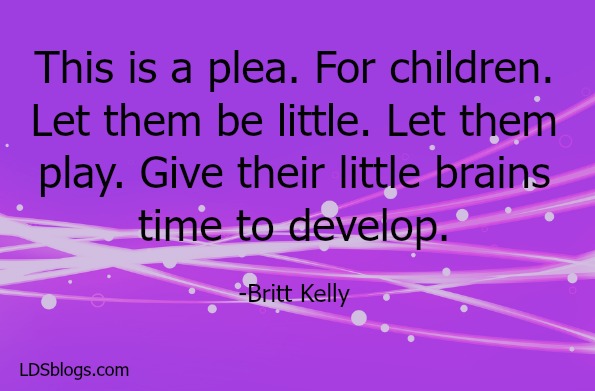

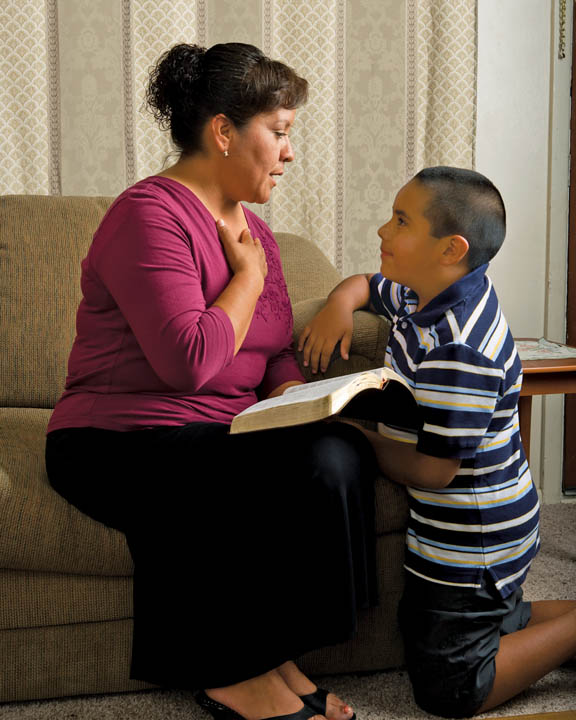

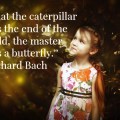

Excellent, Britt!